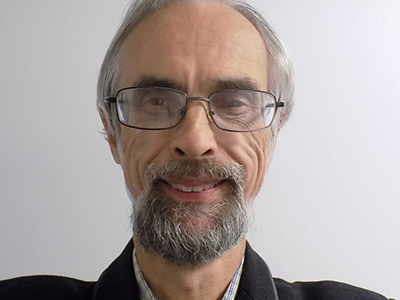Shauna Nuckles Teaches PR and Marketing Pros How to Thrive, Instead of Burning Out
Shauna Nuckles discovered that to truly succeed as an entrepreneur means being a workhorse — but not a workaholic.

Stress Nearly Cost Nuckles Her Job as a Top Business Publicist
Shauna Nuckles grew up in a small town in beautiful northern Idaho, where there was little diversity, but she was always attracted to those who thought differently than she did and loved to read about topics she did not understand. Her grandmother had lived through the Great Depression, when food, water, and shelter were never guaranteed, but always shared what she had and taught Nuckles the importance of empathy and community.
Both of her parents worked in a hospital — her father did psychiatric triage in the emergency room, and her mother was a nurse. In fact, they met at work early in their careers when her mom was her dad’s boss. They showed Shauna the benefits of hard work and serving others.
But Nuckles took the work ethic to an extreme as a perfectionist, and it nearly cost her a career she loved. In high school, she signed up for all kinds of extracurricular activities, was a top-ranked synchronized swimmer, a state champion varsity cheerleader, and salutatorian.
She graduated from the University of Washington in Seattle with a degree in journalism in 2010, after just three years of actual work (she took a year off to work full-time to save enough to pay for schooling). Her internships included organizing events for a major nonprofit and serving on the editorial team at the Seattle Times that wrote and selected opinion pieces. One of hers came to the attention of National Public Radio, which interviewed her.
Another internship with a major public relations agency turned into a very intense job, where Nuckles became an overachiever for nearly a decade, often working 12-16 hour days and on-call 24/7.
Her doctor warned her that being a workaholic was going to cost her unless she slowed down and took care of herself. She formed her own boutique agency and served as the part-time COO at several other small ones.
Then in 2018, Nuckles had to spend time at a hospital acting as an advocate for a family member to make sure treatment was adequate. This additional burden made her realize that what her industry needed was an advocate to help PR and marketing professionals recognize that the traditional way of doing business would lead to burn-out and ineffectiveness.
She formed Advocation in early 2019 to help colleagues work in a more enlightened and productive way, but kept her own agency going because she wasn't sure anyone would be interested in the idea. Then the pandemic hit, and having full-time employees commuting daily into offices was no longer viable, though the workload continued to increase.
"I thought my services would be difficult to market, but people began telling me, 'Where have you been when I needed you my whole career?'" Nuckles told Startup Savant. "I share what I learned about how to be successful in this new world of work, which has to be a hybrid of remote, in-office, and more reliance on part-timers and freelancers. Our industry grew 40% in the past decade, so we had to cope with the almost impossible expectations of clients and the challenges of recruiting a capable workforce even before the Great Resignation. The lessons are applicable to businesses of every kind and size."
She stopped taking on additional clients for her PR agency in late 2021 to focus completely on Advocation. Marketing now is primarily through "being generous with our time to help others succeed," such as hosting virtual workshops. She works with a team of two PR consultants, an operations manager, and a part-time graphic designer.
"We take six weeks to thoroughly audit an agency’s biggest challenges, which are never what they appear to be on the surface," Nuckles said. "We put together a program that will help an agency or a team at a company address the root issues and do better work, while being more productive with less stress. Our contracts might be as short as three months to over a year, depending on what needs to be done."
About 70% of her time is spent working with clients, usually remotely, since they are spread across the US, with 20% devoted to managing her team members and 10% on administration and marketing.
The Costs of Perfectionism
"Being a perfectionist can come out of fear of criticism, shame that nothing you do will ever be quite good enough," Nuckles explained. "It's the false belief that if everything is done 'right,' you will succeed and be accepted by others. It can lead to missing the big picture because you become obsessed with micromanaging every detail. I now see perfectionism as a drug, and my mission is to help others understand how to stop being addicted."
There are many ways for natural perfectionists, such as many entrepreneurs, to learn how to live a more balanced business and personal life. Among her tips:
- Set boundaries. There is a big difference between being obsessed with trying to reach virtually unobtainable perfect goals and being committed to always striving for excellence. Not making yourself available to clients 24/7 is a vital step, training them to understand that you need to have personal time to be able to work effectively. You might turn off the mobile phone and not look at email for at least a half-day each week, when you need to sleep, are on vacation, or time you have promised total attention to the family.
- Appreciate incremental progress. Small, regular wins can help reach the big, scary goals without going through a meltdown. Each day look for ways to make progress, not a quantum leap that is really beyond anyone's capability.
- Be a workhorse, not a workaholic. Put enough attention on your physical and emotional health that you can work as hard as you really must, but not to the extent that you are totally exhausted and can't think clearly. We need to apply the best of our human faculties to manage technology to avoid burning out. Set the right priorities and delegate: every detail does not require your personal attention.
- Speed is not true productivity. Highly ambitious people can be in a mad dash to get to the finish line, confusing speed with being effective about the details that need attention, ignoring feedback, and indulging in wishful thinking about what has been accomplished.
- Give yourself a time limit to dwell. Perfectionists often overthink what needs to be done out of fear of making a mistake. The best leaders know that you can't wait to have every piece of information you would like to before making a decision when there are deadlines.
- Create a new relationship with failure. No one can always be 100% successful at tasks, so look at setbacks as an opportunity to avoid future mistakes and do better.
- Keep your eyes on your North Star. Make sure that your career focus does not exclude your personal priorities and beliefs since there is no true success that has compromised your values.
The Future of Work
The PR industry is largely staffed by women, but three million were forced out of the workforce by the pandemic, and many of them have not returned (a record number of Americans, 47.4 million, voluntarily quit their jobs in 2021, according to the US Bureau of Labor Statistics). Some decided to just lead a more balanced life that allowed them to be home more or pursue personal interests, doing part-time work or consulting on their own schedules. Others decided to start their own companies.
But the bigger problem is that while demand for professionals with experience in publicity or marketing will only increase as businesses grow and the economy becomes more global, Baby Boomers are retiring, many early. A study by the Institute for Public Relations in 2019 found that 60% of executives expected to have to retrain or replace a quarter of their workforce by 2023 (yes, next year, and this was before the pandemic inspired many to get off the rat wheel).
At the same time, Nuckles cites surveys that show that more than 40% of millennials (now aged 25-40) and nearly 55% of Gen Z (aged 9-24) are participating in the gig economy.
Just before the pandemic, the number one perk that PR pros wanted was flextime, but only 41% of employers offered it. The need to work remotely forced a rethinking about how much commuting and being in a central office was really necessary.
"Flextime now has to be built into operations, recruiting, and retention," said Nuckles. "But Band-aid policies and collaboration tools need to be upgraded because the norms of the pre-COVID-19 world are unsustainable. Companies need to invest in creating better systems and processes. With the demand for professionals exceeding those willing to continue to participate in a very stressful industry, leaders will have to adapt to those who want to mostly work from home and have schedules that allow them to pick up kids at school or go out to dinner with friends when they want."
A big part of the solution going forward will involve part-timers and freelancers. This can enable agencies to bring in additional help when launching new services, increase capacity, or manage details while freeing up management to focus on the biggest clients.
"To make this work optimally, improvements are needed in onboarding, training, and providing more of the context and structure that are taken for granted by long-time employees who have worked together in an office," Nuckles said. "Everyone should have their results audited, rather than just assigning them responsibilities, using key performance indicators to make sure progress is on course. All elements of the blended team should be represented at the table during critical meetings and decisions."
The new normal of hybrid work is not just a big challenge but an enormous opportunity, she says, especially for entrepreneurs.
"If you're a small business owner, you are in much closer touch with the needs of your customers and your workforce than a corporate bureaucracy. You're flexible in being able to adapt to this, like driving a speedboat when it comes to making a turn, compared with the corporate cruise ships."
About the Author

Scott S. Smith has had over 2,000 articles and interviews published in nearly 200 media, including Los Angeles Magazine, American Airlines’ American Way, and Investor’s Business Daily. His interview subjects have included Bill Gates, Richard Branson, Meg Whitman, Reed Hastings, Howard Schultz, Larry Ellison, Kathy Ireland, and Quincy Jones.
Startup Resources
- Learn more about Startups
- Visit the TRUiC Business Name Generator
- Check out the TRUiC Logo Maker
- Read our Business Formation Services Review
- Find Startup Ideas
- Explore Business Resources
Form Your Startup
Ready to formally establish your startup? Click below to read our review of the best business formation services!
Best Business Formation Services